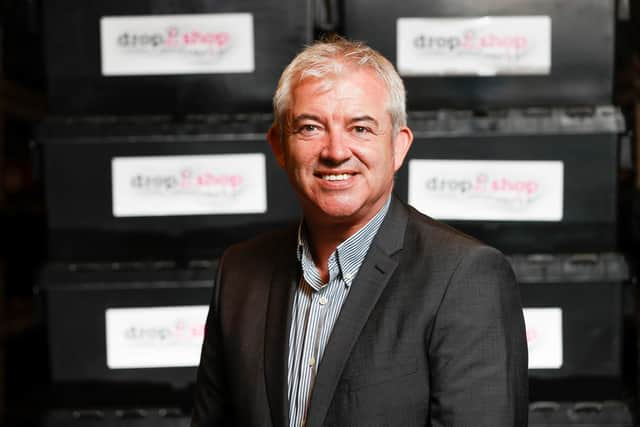Ireland has become important ally to UK businesses after Brexit: Dave Field
According to a paper published by the Office for Budgetary Responsibility in April, Brexit stands to reduce the UK’s productivity into the long run by four per cent.
The total value of both exports and imports will also be 15 per cent lower than if the country had remained in the EU.
Advertisement
Hide AdAdvertisement
Hide AdMeanwhile, trade deals with non-EU countries, such as New Zealand or Australia, says the OBR, simply ‘will not have a material impact’.


Coupled with more administration facing British companies doing their best to maintain commercial relationships with the EU, it provides relatively bleak reading.
It may also cause some to question my firm belief that there are actually reasons to be cheerful close to home.
My confidence is not wishful thinking but based on evidence which demonstrates how Ireland has become even more of an important ally in the time since the UK renounced its ties with Brussels.
Advertisement
Hide AdAdvertisement
Hide AdOnly a few weeks ago, for instance, the Department for Business and Trade released data on overseas business.
They revealed that Ireland had become the UK’s fourth biggest export market, accounting for £85.7 billion worth of sales in the 12 months to the end of March - more than France, China and India.
The value of all trade back and forth across the Irish Sea is up by 59 per cent since the Brexit vote.
Not bad for a country with a population just over half that of London.
Advertisement
Hide AdAdvertisement
Hide AdThe figures illustrate only too clearly one aspect of Brexit; namely, that many British took fright when it took place.
Between 2016 and 2019, the export of goods from the UK rose by 22 per cent to £363.5 billion. In the following 12 months - as the terms of the withdrawal were being thrashed out - it shrank by 15 per cent.
Even so, overseas sales have rebounded: in the last financial year, they were almost 40 per cent up on the 2020 figure.
Part of that is undoubtedly due to some firms finding solutions to the obstacles posed by post-Brexit customs regulations, while other companies decided to forgo prospective foreign sales.
Advertisement
Hide AdAdvertisement
Hide AdWe managed to automate the process for our customers and, as a result, now handle roughly 40 per cent of all customs declarations made by those shipping goods from the UK to Ireland.
Many clients are UK retail brands which know very well that Ireland is one of Europe’s fastest-growing e-commerce markets and presents sizeable opportunities.
There are still challenges, including the phased introduction of something known as the Border Target Operating Model.
Described as ‘a new model for imports’ it will mean more paperwork for the declaration of goods heading from Ireland and the rest of the EU into the UK when it comes into force in October next year.
Advertisement
Hide AdAdvertisement
Hide AdYet from the detailed preparations which we have already undertaken, I am convinced that it will prove little more than another hiccup.
There may have been differences between our respective countries over the centuries but there is also much in common.
It is those similarities which mean that we are likely to remain strong trading partners, able to adjust to whatever political or commercial circumstances arise.
Dave Field is Founder and Chief Operations Officer for Coll-8 Logistics